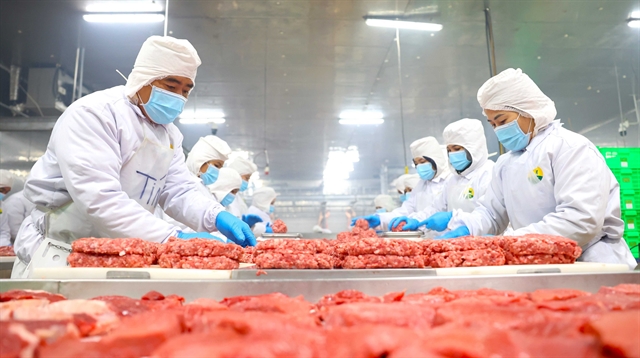 Society
Society

Four provinces in Việt Nam have reported six outbreaks of bird flu, according to the Department of Animal Health.
 |
| A veterinary staff sprays disinfectant on ducks to prevent bird flu infection. — Photo vietnamplus.vn |
HÀ NỘI — Four provinces in Việt Nam have reported six outbreaks of bird flu, according to the Department of Animal Health.
The provinces affected are Vĩnh Long, Đăk Lắk, Quảng Ninh and Thừa Thiên-Huế.
An outbreak was detected in the southern province of Vĩnh Long on Saturday at a household in Bình Tân District’s Mỹ Thuận Commune which affected 300 chicken.
More than 3,000 chicken also tested positive for A/H5N1and were disposed of at a farm in the province’s Bình Minh Town.
In the northern province of Quảng Ninh, 320 poultry were reported to have fallen ill and died in the past four days. The number of poultry culled was 670.
Two farms in the central province of Thừa Thiên-Huế’s Phú Lộc District lost 6,500 ducks due to infection, while the Central Highlands province of Đắk Lắc recorded 43 infected poultry.
The animal health department said the country now faces a high risk of a bird flu epidemic.
A number of avian flu types that haven’t been found in Việt Nam such as A/H7N9 and A/H5N2 could enter the country via trading poultry with unclear origin, particularly in northern provinces bordering China, it said.
The department asked localities to be active in bird flu prevention and strictly deal with poultry smuggling.
It was necessary for localities to supervise poultry to detect bird flu outbreaks and tackle them promptly.
Last week, the Ministry of Agriculture and Rural Development launched a National Monitoring Programme for avian flu to prevent the spread of the virus.
The programme emphasises early detection to enable early warnings about the virus entering Việt Nam.
It is also expected to help build virus-free zones and facilities to diminish the risk of virus transmission to human beings, foster sustainable growth of poultry and promote exports of poultry products.
Under the programme, regular sample checks will be conducted at all live poultry markets in provinces where poultry farming is a key industry, and in border provinces.
Monitoring activities and sampling will also be conducted on wild birds and farming of wild birds.
All provinces and companies with poultry production and export chains, as well as farms under the management of the central Government or local authorities, are subject to regular monitoring.
The programme will help improve the capacity of monitoring bodies by organising training activities for staff at seven regional veterinary agencies and 63 city or provincial departments of husbandry and veterinary, as well as all veterinary laboratories which conduct avian flu tests. — VNS




